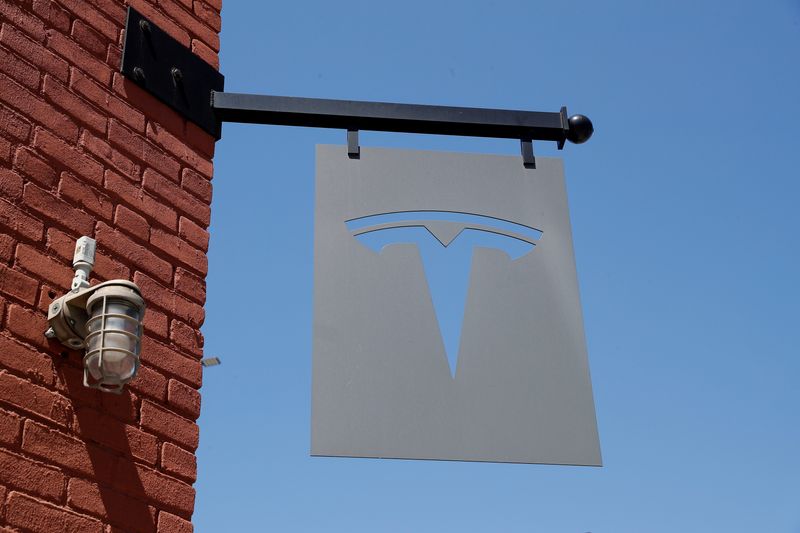(Reuters) -Tesla Inc is considering setting up a lithium refinery on the gulf coast of Texas, as it looks to secure supply of the key component used in batteries amid surging demand for electric vehicles.
The potential battery-grade lithium hydroxide refining facility, which Tesla (NASDAQ:TSLA) touted as the first of its kind in North America, will process "raw ore material into a usable state for battery production", the company said in an application filed with the Texas Comptroller's Office.
A decision to invest in Texas will also be based on the ability to obtain relief on local property taxes, Tesla said.
Chief Executive Officer Elon Musk has previously said that Tesla may have to enter the mining and refining industry directly at scale as lithium prices surge.
Musk has also been vocal about the need for more players in the lithium refining industry. "You can't lose. It's licensed to print money," he had said at the company's second-quarter earnings call.
Securing a steady supply of battery components is seen critical for Tesla as it faces fierce competition in the fast-growing market for electric cars.
If approved, construction could begin in the fourth quarter of 2022 and would reach commercial production by the end of 2024, Tesla said in the application dated Aug. 22.
Under the plan, Tesla will ship the final product from the refinery by trucks and rail to various Tesla battery manufacturing sites supporting the supply chain for large-scale and electric vehicle batteries.
Tesla, whose shares rose 1.4% in premarket trading, also said it would use less hazardous reagents and create usable byproducts, compared with the conventional process.
LITHIUM SCRAMBLE
Lithium prices have skyrocketed this year due to surging demand from the auto sector. China remains the world's largest lithium processor, though proposed rival projects in the United States and European Union have faced a range of setbacks.
If Tesla's plan goes ahead, the carmaker could become the first in the sector to invest directly in lithium refining as automakers scramble to stitch up deals with miners and refiners.
"Car-makers are trying to ensure they have control over the supply of lithium, hedging for any geopolitical situation that might arise in future where the supply is disrupted," said Arpit Agarwal, director at venture capital firm Blume Ventures, which has backed EV startups such as Euler Motors and Yulu.
Tesla also stands to gain from lower logistics costs as well as incentives it may get from the U.S. government, he added.
Battery makers are also looking to increase production in the United States, where a shift toward EVs could increase as the country implements stricter regulation and tightens tax credit eligibility.

Tesla itself signed a five-year supply deal with Australia's Liontown Resources earlier this year, while rival EV makers Stellantis and Byd have invested in miners around the world.
CATL, the world's biggest battery maker, has also taken stakes in lithium miners.